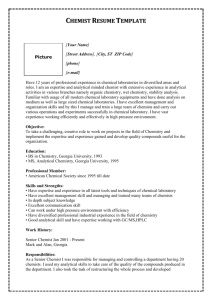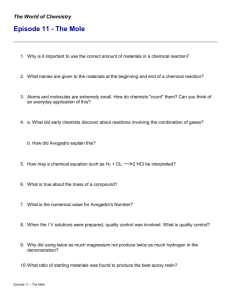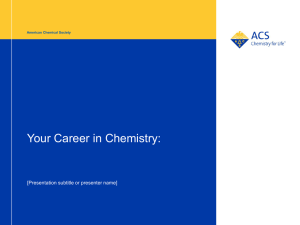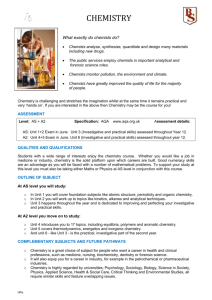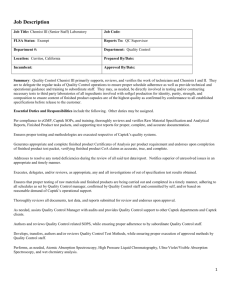What Is a Chemist
advertisement
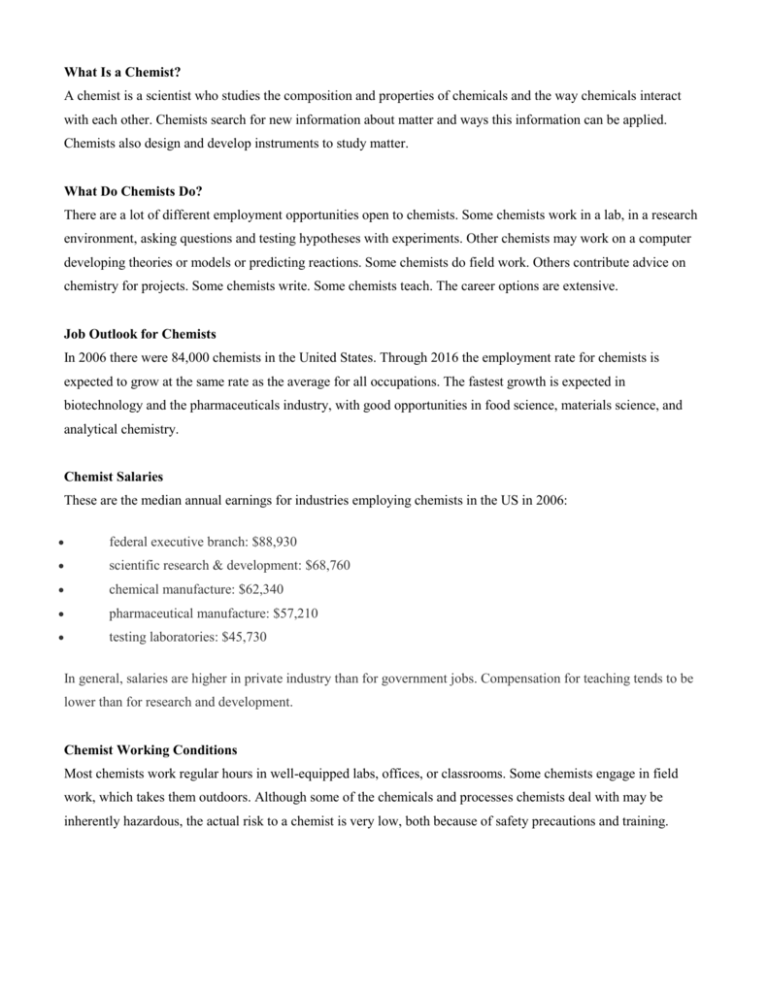
What Is a Chemist? A chemist is a scientist who studies the composition and properties of chemicals and the way chemicals interact with each other. Chemists search for new information about matter and ways this information can be applied. Chemists also design and develop instruments to study matter. What Do Chemists Do? There are a lot of different employment opportunities open to chemists. Some chemists work in a lab, in a research environment, asking questions and testing hypotheses with experiments. Other chemists may work on a computer developing theories or models or predicting reactions. Some chemists do field work. Others contribute advice on chemistry for projects. Some chemists write. Some chemists teach. The career options are extensive. Job Outlook for Chemists In 2006 there were 84,000 chemists in the United States. Through 2016 the employment rate for chemists is expected to grow at the same rate as the average for all occupations. The fastest growth is expected in biotechnology and the pharmaceuticals industry, with good opportunities in food science, materials science, and analytical chemistry. Chemist Salaries These are the median annual earnings for industries employing chemists in the US in 2006: federal executive branch: $88,930 scientific research & development: $68,760 chemical manufacture: $62,340 pharmaceutical manufacture: $57,210 testing laboratories: $45,730 In general, salaries are higher in private industry than for government jobs. Compensation for teaching tends to be lower than for research and development. Chemist Working Conditions Most chemists work regular hours in well-equipped labs, offices, or classrooms. Some chemists engage in field work, which takes them outdoors. Although some of the chemicals and processes chemists deal with may be inherently hazardous, the actual risk to a chemist is very low, both because of safety precautions and training. Types of Chemists Chemists ususally pick areas of specialization. Organic Chemists - work with carbon and carbon-compounds, many of which come from plants or animals. Organic chemists develop drug, petrochemicals, fertilizers, and plastics. Inorganic Chemists - deal primarily with non-carbon chemistry involving metals, minerals, and electronics. Analytical Chemists - examine substances. Analytical chemists identify materials, measure quantities, and evaluate properties of elements and compounds. Physical Chemists - work primarily in the field of energy research. Physical chemists look at chemical and physical changes and examine the relationships between matter and energy. There are many other types of chemists, such as biochemists, materials chemists, geochemists, and medical chemists. Chemist Educational Requirements You need a college education to become a chemist. High school students interested in a career in chemistry should take science and math courses. Trigonometry and computer experience is helpful. A bachelor's degree is the minimum requirement to get a job in chemistry, but realistically, you need a master's degree to obtain a good position in research or teaching. A doctorate is required to teach college at most four-year colleges and universities and is desirable for research. Advancement as a Chemist To some extent, chemists are promoted based on experience, training, and responsibility. However, the best opportunities for advancement are associated with advanced degrees. A chemist with a master's degree qualifies for research positions and teaching positions at two-year colleges. A chemist with a doctorate can conduct research, teach at the college and graduate level, and is more likely to be selected for supervisory or management positions. How to Get a Job as a Chemist Students studying chemistry often accept co-op positions with companies so they can work in chemistry while getting their education. These students often stay on with the company following graduation. Summer internships are another excellent way to learn whether or not a chemist and a company are a good fit for each other. Many companies recruit from campuses. Graduates can learn about jobs from college career placement offices. Chemistry jobs may be advertised in journals, newspapers, and online, though one of the best ways to network and find a position is through a chemical society or other professional organization.

